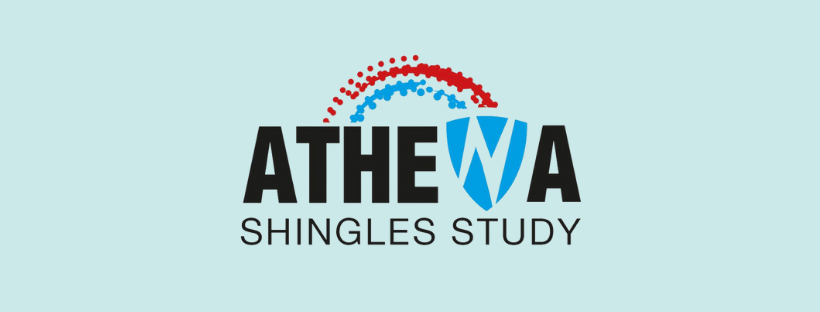
April 7, 2022
One Care supports the ATHENA study
One Care is working with the University of Bristol, on their research project which looks at the use of AmiTritypline for the prevention of post-HErpetic NeuralgiA (ATHENA).
Shingles is caused by a virus, the same virus that causes chickenpox. It can make people feel unwell, cause pain and a rash can follow. Some people can develop nerve pain months after the rash has gone, called post-herpetic neuralgia. Researchers at the Universities of Bristol, Oxford, Southampton and Warwick want to find out if taking a tablet called amitriptyline can prevent persistent pain.
Amitriptyline is a drug. To find out if using amitriptyline when the rash first appears prevents pain later, the clinical trial is recruiting 846 patients, aged 50+ who have been diagnosed by their GP with shingles. These patients will take tablets nightly for 10 weeks – half will be given amitriptyline and the other half will get a placebo tablet. Questionnaires will then be used to find out what happens to everyone over the following 12 months, especially whether they still have pain related to shingles at 90 days.
Invited to take part in the study are 120 practices across three clinical research network (CRNs) areas – CRN West of England (this includes Bristol, North Somerset and South Gloucestershire), CRN Wessex and CRN Thames Valley.
One Care is providing digital support to this clinical trial in the form of EMIS resource and data extraction. One Care has worked closely with the research team at University of Bristol, to understand the ideal process for identifying eligible patients at a practice and inviting them to the study.
This has led to the design of an EMIS protocol which automatically alerts a clinician that a patient may be suitable to take part in the ATHENA study. One Care has also designed an EMIS search to collect the data needed by the health economists to undertake analysis for this research.
The EMIS resources designed mean practices do not have to design their own, and a standardised design means higher quality data can be gathered. With One Care managing data extractions, it also reduces administrative work for the practices.
Speaking about One Care’s involvement with the study, One Care’s Head of Digital Support Colette Buckley said “We’re really excited to be supporting this important research project. It’s a great opportunity to work with our academic colleagues to explore improvements to patient care. This is the first of many research projects we will be supporting in 2022.”
If you’d like to learn more about how One Care is supporting this study, please contact emis.optimisation@onecare.org.uk or call 0117 941 0900.
One Care supports the ATHENA study




